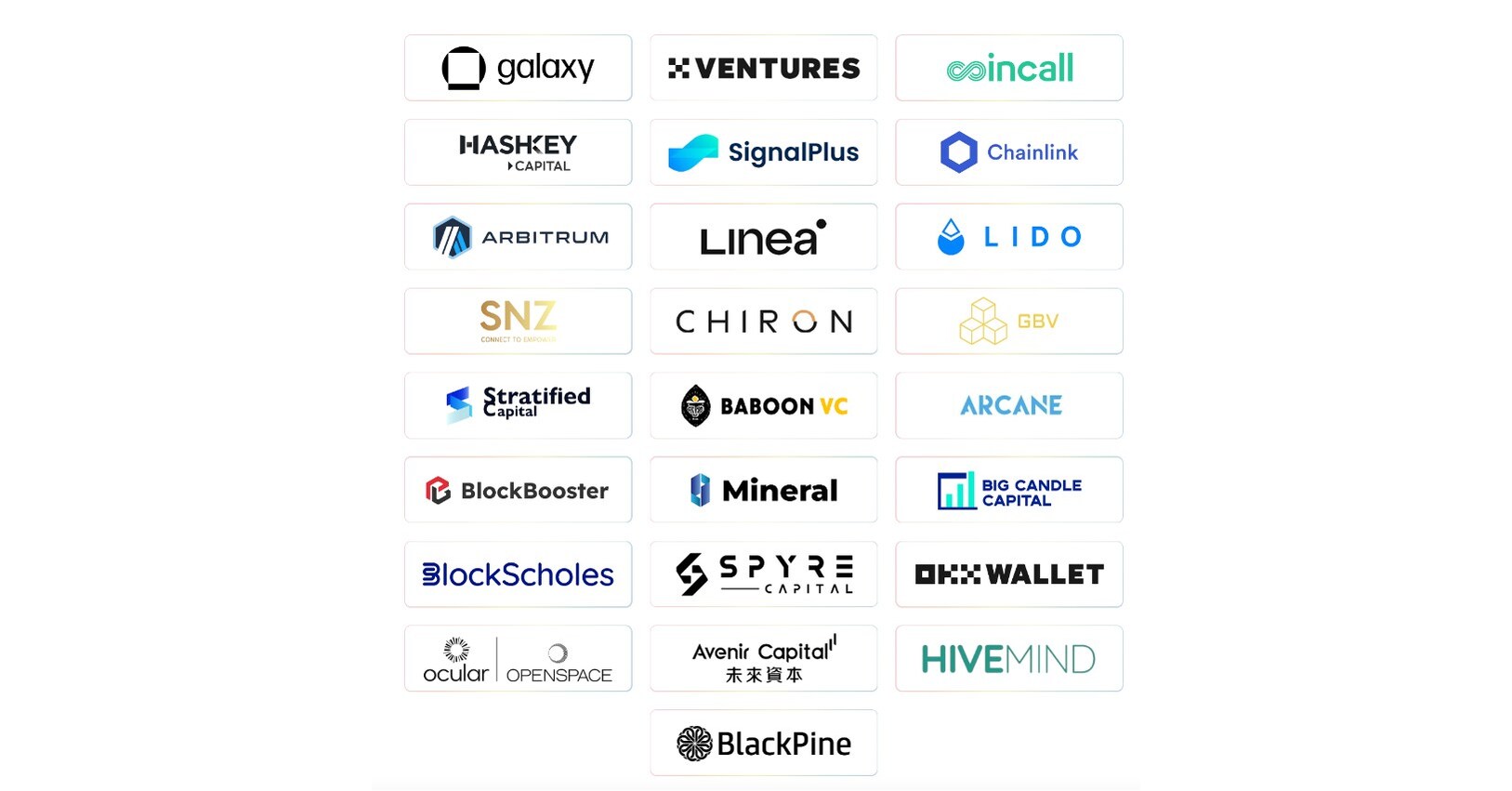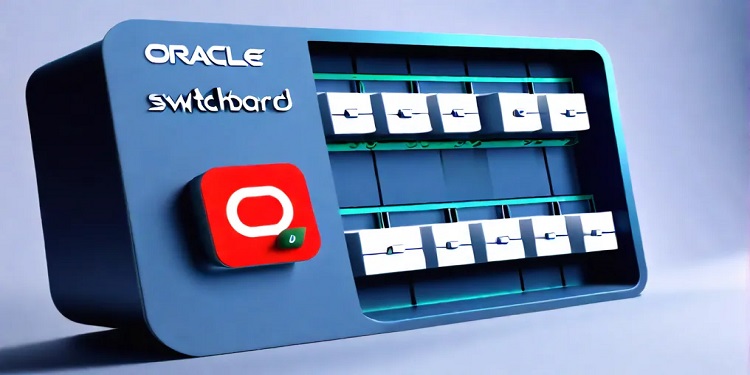DeFi
“Exchange what you want, with who you want”

HONG KONG, June 10, 2024 /PRNewswire/ — The world of decentralized finance (DeFi) is a vital part of the cryptocurrency industry, offering innovative financial solutions outside of traditional banking systems. However, as the industry evolves, DeFi mechanisms become more and more complex. This complexity presents challenges not only for newcomers but also for seasoned enthusiasts, often referred to as “DeFi Degens,” who need a lot of time to understand the sophisticated operations.
Founders
SOFA Workflow Overview
In simpler terms, if early DeFi could be compared to a basic children’s Lego set, today’s DeFi is more akin to a Technic Lego set with thousands of complex pieces. Innovating within DeFi to reduce this complexity and make it more accessible has become a pressing need.
To solve this problem, various DeFi protocols, investment institutions, middleware providers and blockchain builders have come together to form SOFA.org, a decentralized non-profit organization. SOFA.org is dedicated to promoting the highest standards in DeFi, supporting high-quality projects, and advocating for the widespread adoption of blockchain technology in finance. Its founding members include notable names such as Galaxy Asia Trading Ltd, OKX Wallet, Coincall, HashKey Capital, SignalPlus, and Chainlink, among others.
SOFA.org’s grand vision for an on-chain clearing ecosystem
Clearing is one of the most critical elements of DeFi derivatives trading, ensuring the stability of the system and protecting the interests of all participants. Today’s DeFi derivatives are diverse and complex, involving various assets and complex business logic. In the decentralized world, clearing is carried out via smart contracts and decentralized protocols, enabling automated processes with minimal trust required. This real-time clearing ensures the security of participants’ funds and maintains the integrity of transactions.
SOFA.org aims to tackle the complexities of on-chain derivatives with the near-term goal of creating a comprehensive clearing and settlement ecosystem. Essentially, SOFA.org aspires to be the “Android” of DeFi, allowing various DeFi protocols to clear different financial derivatives on its platform. Just like mobile apps installed on different phones, these derivatives positions can operate seamlessly across different protocols. By joining SOFA.org, the protocols will achieve underlying interoperability, allowing them to mutually offset their derivatives positions. This will pave the way for even more complex and sophisticated on-chain financial products.
Overview of SOFA protocols
SOFA.org unveils a set of structured products called SOFA protocols. This innovative protocol brings together several functions of the DeFi product, creating a hybrid derivatives protocol. The initial launch will take place on Ethereum and Arbitrum, with future expansions planned for Linea, X Layer and other EVM-enabled chains.
SOFA protocols offer a new way to manage crypto by making transactions clear and secure. It allows users to benefit from the best products without worrying about who they are trading with or where their money is held. All details are recorded transparently on the blockchain, supporting a wide range of products. Tokenized positions improve capital efficiency and can be pledged on DeFi and centralized platforms as assets. Using ERC-1155 tokens saves money and the system is designed to be durable and user-friendly.
As the first proof of concept of SOFA, they will initially focus on three popular product structures called Rangebound, Bull Trend, and Bear Trend.. All of these products are available in “Earn” or “Surge” format. Additionally, additional product types will be continually added based on user demand and ecosystem feedback.
SOFA Workflow Overview
The volatile nature of crypto asset prices often causes them to move up, down, or sideways. SOFA protocols recognize these patterns and have transformed them into Bull Trend, Bear Trend and Rangebound structures, and available in “Earn” and “Surge” formats to suit different risk preferences.
Earn is designed for users seeking stability and capital preservation. This involves depositing initial funds into established yield protocols such as Compound or AAVE to generate base interest. This process is meticulously reviewed, with governance token holders voting on the choice of protocol. If market conditions match specific criteria, additional profits can be generated.
Earn aims to minimize risks, ensuring the safety of the initial deposit, providing stable returns and providing the opportunity to make additional profits without risking capital. Even though potential returns are lower than high-risk products and profits are capped in highly volatile markets, it remains a reliable option.
For example, if a user opts for a Rangebound structured product with an annual yield of 4% in Earn and predicts that ETH will fluctuate between $3,500 and $3,900 by June 28, they will get an excess return if the ETH remains in this range at expiration. If ETH breaks out of this range, it will still earn a 4% annual return.
Overvoltage aims to maximize potential returns by speculating on high-risk strategies. This product involves predicting a specific price range for crypto assets at a given time. If the price is within the expected range, users receive high returns. However, if the prediction is incorrect, the user will lose the initial deposit.
For example, if a user predicts that the price of Bitcoin will be between $71,250 and $74,000 on June 11 and purchases notes worth $20, the potential return could be $60.28. Conversely, the maximum loss would be $20.
SOFA Protocols’ products look like a combination of various DeFi protocol offerings. The innovation of SOFA protocols lies in integrating the strengths of multiple protocols, providing a more intuitive user interface and user-friendly interactive products. This approach is particularly beneficial for new entrants and those who do not wish to delve deeper into the complexities of DeFi.
SOFA Protocols aims to improve user experience and offer a rich set of financial tools to the market. In doing so, it promotes the further development of the DeFi ecosystem, making it accessible and beneficial to a wider range of users.
Tokenomics: the war of curves
In terms of business model, SOFA.org uses a dual-token model similar to many GameFi projects, incorporating unique game theory mechanics. The dual token system includes the RCH utility token and the SOFA governance token.
RCH token: The total supply is 37 million. Before the official launch, 67.6% (25 million RCH) will be placed in a Uniswap liquidity pool with at least 700 ETH (approximately $2.7 million) to establish the initial price and liquidity. The corresponding Uniswap LP tokens will be destroyed, permanently blocking this part of the liquidity in Uniswap.
The remaining 32.3% of RCH tokens will be released on a fixed schedule. After launch, 12,500 RCH will be unlocked daily, decreasing by 20% every 180 days until all tokens are distributed. This allocation method ensures a gradual release, avoiding market volatility.
Initially, daily RCH production represents only 0.05% of the circulating supply, which has minimal impact on the market. Simultaneously, all revenue from the SOFA.org ecosystem will be used to purchase and burn RCH on Uniswap, further increasing its scarcity and value.
SOFA Token: The launch is planned six months after the project comes into operation. SOFA tokens grant their holders voting rights to directly participate in ecosystem decisions. As a decentralized, non-profit, open source technology organization, all decisions at SOFA.org will be determined by the votes of SOFA token holders.
Early Founding Members, Developers, Ecosystem Advisors, Active Community Members, Early RCH AMM Liquidity Contributors, and CeFi and DeFi protocols supporting SOFA Protocol Position Tokens will have the opportunity to get SOFA tokens.
The economic value of SOFA tokens is directly linked to their governance function. Holders can vote on the introduction of new financial products, the ratio of RCH distribution between introduced products and the ratio of distribution between protocols within the ecosystem. The inclusion of new guarantees and new partners also requires the approval of SOFA holders.
As SOFA.org’s popularity grows, a positive flywheel effect between RCH and SOFA will ignite the market. Increased use of SOFA.org will result in full use of fees to purchase and burn RCH. However, the daily production of RCH is fixed, which further increases its rarity and market value.
As RCH prices increase, some users will increase their use of SOFA.org ecosystem projects to obtain more RCH, while others will purchase SOFA tokens to influence the distribution of RCH. Some projects in the SOFA.org ecosystem may even bribe SOFA holders to obtain higher RCH allocation ratios, thereby boosting project usage.
It seems a new war of curves is on the horizon.
Media Contact:
Lynloo Lee
+65 88107289
[email protected]
SOURCE SOFA.org
DeFi
Is Zypto Wallet a Reliable Choice for DeFi Users?

Zypto wallet is a newcomer in the crypto landscape and has already made waves for its exclusive benefits and security features.
In this article, we will take a look at the Zypto crypto wallet and how it can help users securely manage their digital assets, interact with Web3 applications, and explore the world of Challenge.
What is Zypto Wallet?
Zypto App is a newly launched versatile crypto wallet that supports a wide range of coins and tokens, along with seamless access to Web3 applications, token exchanges, virtual crypto cards, a gift card marketplace, and a payment gateway.
What are the pros and cons of Zypto Wallet?
Benefits
- User-friendly: Zypto’s user interface is very intuitive with a simple setup process.
- Multi-Chain DEX Swaps: Zypto facilitates trading between thousands of cryptocurrencies, thanks to its versatile multi-chain token swap feature.
- Built-in dApp Browser: You can access Web3 applications directly in your wallet using the in-app dApp browser.
- Live Customer Support: The wallet has an in-app live customer support team that responds quickly to all your queries.
- Rewards Program: Zypto has a loyalty program that allows you to earn rewards, improving the overall user experience.
- Virtual crypto cards: The wallet makes it easy and reliable to use digital currencies for everyday transactions through its range of virtual cryptocurrency cards.
The inconvenients
- Limited analysis tools: Zypto offers advanced charting features and limited technical analysis tools that might not appeal to experienced cryptocurrency traders.
What DeFi products and services does Zypto Wallet offer?
Zypto allows you to securely manage a wide range of cryptocurrencies across multiple blockchains, acting as a user-friendly entry point into the Web3 ecosystem.
Multi-Chain Wallet
As a multi-chain wallet, Zypto supports hundreds of thousands of digital assets across different blockchains. Zypto is also committed to adding support for more chains in the coming months, expanding its universe of explorable assets.
Multi-Chain Exchange Functionality
Instead of the tedious process of selling one token on one exchange and buying another of the same type hosted on a different blockchain, Zypto offers a cross-chain swap feature.
DApp Browser
Another easy-to-use feature is the in-app dApp browser. Simply bring up the browser from the small globe icon at the bottom of your screen and it will first take you to the Zypto homepage.
The browser provides all the features under one application so you don’t miss anything that warrants opening a separate browser.
Zypto DeFi Wallet Review
User experience
Zypto’s ease of use is one of its main advantages. Once the app is downloaded, you can view your wallet from the home screen. Other buttons at the bottom of your screen will take you to prepaid virtual cards, an Explore Zypto page, where you can send, receive, exchange, buy and sell tokens, or access the dApp browser and your contact list.
Zypto requires KYC information before processing cards, as it is part of regulatory compliance. Contacts are another benefit: instead of tediously copying and pasting long addresses, simply save them under a contact name.
How to set up your Zypto wallet?
To start using Zypto, simply download the app. Once installed, you’re ready to go.
You can create a new wallet by pressing the Create Wallet button or import an existing wallet by writing (or pasting) your passphrase to verify your identity. You can also import it in read-only mode, in which case you only need the wallet name and address.
Conclusion: The Verdict
Zypto is relatively new in the DeFi space, but it’s already gaining popularity among different types of users. Those who prefer everything neatly organized in one place will find the app appealing, as will those who prefer its rich features and integration with fiat payment methods over on- and off-ramp cryptocurrencies.
DeFi
Switchboard Revolutionizes DeFi with New Oracle Aggregator

Switchboard, a leading oracle network known for its permissionless and fully customizable features, has launched a revolutionary oracle aggregator. This new tool enables seamless integration of data across multiple oracle networks, including household names like Chainlink and Pyth Network. In doing so, it provides users with access to a wide range of data sources, improving the versatility and reliability of decentralized finance (DeFi) applications.
Addressing security and cost challenges in DeFi
The Oracle Aggregator is designed to address significant security and cost challenges in the DeFi sector. In 2023, the Web3 industry saw losses exceeding $500 million due to price manipulation attacks, a notable increase from $403.2 million in 2022. These attacks accounted for 33% of the total value lost due to hacks. By expanding the diversity and volume of data sources, Switchboard aims to strengthen the resilience of data streams against such malicious activities, thereby improving the overall security of DeFi platforms.
Empowering developers with customizable data streams
Switchboard’s new Oracle Aggregator allows developers to design custom data feeds that draw from a wide range of sources, both within and outside of the Switchboard platform. This flexibility allows developers to create tailored feeds that meet their specific needs, moving away from rigid templates. The platform’s permissionless nature and lack of gatekeepers ensure developers have complete control over the data feeds they create.
Switchboard CEO Chris Hermida noted that the company’s philosophy has always been to empower developers rather than constrain them. By launching Oracle Aggregator, Switchboard allows developers to use data from a variety of sources, including Pyth and Chainlink, enabling innovation and customization of their projects. Hermida noted that this new capability allows developers to break away from traditional models and take a more personalized approach to data integration.
Plug-and-Play approach for enhanced security
Switchboard’s Oracle Aggregator offers a plug-and-play approach that allows users to leverage multiple Oracle networks, enhancing data security and reliability. By aggregating data from multiple sources, developers can improve the scalability and redundancy of their data feeds, setting a new industry standard as the first generalized Oracle aggregator. This scalability ensures that projects can mitigate risks associated with data manipulation and other vulnerabilities.
One of the most notable features of Oracle Aggregator is its customizable nature. Developers can selectively choose trusted data sources, eliminating those that do not meet their standards. This level of control is crucial for projects that aim to protect their operations from potential threats.
Innovative use of secure execution environments
Switchboard uses Trusted Execution Environments (TEEs) to ensure that data aggregation occurs entirely off-chain. This innovative approach minimizes gas costs associated with on-chain operations while preserving data integrity. Aggregated data is then shared with users in a single on-chain transaction, simplifying the process and reducing operational expenses.
Mitch Gildenberg, Switchboard’s CTO, highlighted the platform’s developer-centric design. He noted that the platform is designed to put developers in control, allowing them to fine-tune each data flow to their specific needs. This approach reflects Switchboard’s commitment to understanding and meeting developer needs.
Expansion and impact on the industry
Since its launch in 2021, Switchboard has seen significant growth, amassing over 180,000 users and achieving a total valuation of $1.6 billion. The company’s commitment to user autonomy and inclusion has been a driving force behind its rapid expansion in the Web3 ecosystem. Earlier this year, Switchboard raised $7.5 million in a Series A funding round co-led by Tribe Capital and RockawayX, with additional support from leading investors including the Solana Foundation, Aptos Labs, Mysten Labs, Subzero Ventures, and Starkware.
Conclusion
As the DeFi industry continues to evolve, tools like Switchboard’s Oracle Aggregator will play a crucial role in building robust and secure decentralized applications. By giving developers the ability to integrate and customize data feeds from multiple sources, Switchboard is setting new industry standards, driving innovation, and improving the overall security of the Web3 ecosystem.
DeFi
Bitcoin is the solution to inevitable hyperfinancialization

Disclosure: The views and opinions expressed here belong solely to the author and do not represent the views and opinions of the crypto.news editorial team.
If there is one thing that is becoming clear, it is that hyperfinancialization is inevitable, and our best chance of achieving it successfully is through Bitcoin (Bitcoin). This decentralized cryptocurrency, known for its fixed supply and robust security, offers a unique solution to the coming problem of wealth inequality and concentrated power. By embracing Bitcoin, we can create a more transparent and resilient financial future, or we risk losing our financial sovereignty to a handful of corporations.
The hyper-financialization of the world has already begun, with the financial sector becoming a relatively larger part of the economy, in terms of size and importance. Financial structures are also expanding rapidly in other sectors.
For example, in 2023, Americans spent more than $100 billion on state-run lotteries, according to According to The Economist, the poorest citizens spent huge amounts on tickets. In addition, the online sports betting market, valued at more than $100 billion, is projected to generate nearly $46 billion in revenue this year, with a user penetration rate of 3.9%.
Moreover, Robin HoodRobinhood, a commission-free investment platform popular with retail investors, saw its funded customers climb to 23.9 million and its assets under custody soar to $129.6 billion, another prime example of the hyper-financialization trend. Robinhood began to gain traction during the COVID-19 pandemic in 2020, and the hyper-financialization trend was exacerbated. For people stuck at home, the online world became their primary means of entertainment and social interaction.
Governments then injected billions of dollars into the market, encouraging people to bet their money on the markets. The subsequent surge in inflation and the weakness of the global economy further intensified this trend, with people having to bear the burden of survival.
This has led to an increased proliferation of financial structures in different spheres of life, meaning that both manufacturers and consumers are taking this route.
As we can see, cryptocurrency has grown from less than $150 billion in March 2020 to $2.7 trillion today. This explosive growth not only accelerates the trend towards the hyperfinancialization of finance with yield farming, resttaking, points, rewards and meme coins, but also that of art via NFTs, social dynamics via social tokens and platforms like Friendtech, game with play-to-win conceptsand physical assets through tokenization.
There are also prediction markets that allow people to bet on all sorts of events. These range from the outcome of the 2024 US presidential election to whether Bitcoin will hit $100,000 by the end of the year, whether Drake’s verse in “Wah Gwan Delilah” is an AI, what the opening weekend box office of “Bad Boys: Ride or Die” will be, or whether the Fed will raise rates this year.
This growing trend towards hyper-financialization is detrimental to society because it widens already large wealth gaps by increasing wealth concentration and contributing to economic inequality. Not to mention that it will lead to even larger asset bubbles, a focus on the short term at the expense of the long term, and an increased interest in speculative investments.
Here, cryptography can help find a better way to address hyperfinancialization. After all, the wealth is in the middlemen, and using blockchain technology removes this third party from the equation, bringing reliability, traceability, and immutability to the market. Blockchain actually allows hyperfinancialization to be fair and transparent.
Before the advent of cryptocurrencies, not everyone was allowed to participate in markets. But through disintermediation and permissionlessness, cryptocurrencies have made markets more efficient and accessible. Not to mention, everyone gains full control over their data, mitigating the risk of data manipulation and privacy violations.
This is where Bitcoin offers the perfect solution. This decentralized peer-to-peer network enables financial inclusion and censorship resistance, which is critically important in today’s world where organizations and governments are encroaching on people’s rights. This network has a decade-and-a-half-old history behind it, providing a robust and secure platform for people to achieve financial sovereignty.
This trillion-dollar asset class also serves as a hedge against inflation, allowing holders to preserve their wealth over time. Unlike fiat currencies, which are devalued by politicians, Bitcoin’s fixed supply and decentralization protect it from such pressures, making it the perfect asset to own in a world where everyone is competing to extract value.
The largest crypto network is now also seeing experimentation, as developers and investors use it as a foundation to build a truly decentralized future of finance and value.
For so long, Bitcoin has been a low-activity blockchain, with its key role being to store value. While Bitcoin has played a passive role in the blockchain world for all these years, it has finally changed with Taproot Upgrade which brought NFTs into the Bitcoin world. Then there was a growing interest in tokenization, also from institutions like Blackrock.
This drive to expand Bitcoin’s utility has sparked a wave of innovation, and the day is not far when BTC could dethrone Ethereum as the go-to blockchain for decentralized finance. Several aspects, including Bitcoin’s robust security framework, widespread acceptance, and institutional interest, position Bitcoin at the forefront of defi innovation.
So, with these developments, Bitcoin is now evolving to begin its new era of utility and innovation after realizing its original vision of being a peer-to-peer electronic currency system.
As everything becomes a financial asset and tradable, attention, which is a scarce resource, will become even more crucial. Bitcoin has already cemented its position in the attention economy, and the newfound interest in regulatory complaints and widespread adoption of BTC to boost productivity will allow it to lead the future of digital economies. This portends a world where crypto leads the charge towards hyperfinancialization, with BTC in the driver’s seat.
So, to conclude, the resilient Bitcoin network that has spectacularly survived the test of time may have started as a means to facilitate the seamless flow of monetary value, but today, it has become a foundation of hope not only to protect against a future that is going to be super fixated on the financial aspect, but also to take advantage of it to create wealth and prosper.
Jeroen Develter
Jeroen Develter is the Chief Operating Officer at Persistence Labs and a seasoned professional in financial and tech startup environments. With a decade of international consulting, management, entrepreneurship and leadership experience, Jeroen excels at analyzing complex business cases, establishing streamlined operations and creating scalable processes. With Persistence, Jeroen oversees all product and engineering efforts and is deeply passionate about improving the adoption of Bitcoin defi, or BTCfi, and using intents to develop scalable, fast, secure and user-friendly solutions. His work at Persistence Labs addresses the significant interoperability challenges between Bitcoin L2s. In addition, Jeroen is also a co-host of the Stacked Podcast, a platform to gain knowledge about Bitcoin and cryptography from prominent Bitcoin creators.
DeFi
Haust Network Partners with Gateway to Connect to AggLayer

Dubai, United Arab Emirates, August 1, 2024, Chainwire
Consumer adoption of cryptocurrencies is a snowball that is accelerating by the day. More and more people around the world are clamoring for access to DeFi. However, the user interface and user experience of cryptocurrencies still lag behind their fundamental utility, and users lack the simple and secure access they need to truly on-chain products.
Haust Network is a network and suite of products focused on changing this paradigm and bringing DeFi to the masses. To achieve this goal, Haust Network has announced its far-reaching partnership with bridgeseasoned veterans in rapidly delivering revolutionary blockchain utilities for projects. The Gateway team empowers blockchain developers to build DAOs, NFT platforms, payment services, and more. They drive adoption of crypto primitives for individuals and institutions around the world by helping everyone build their on-chain presence.
Gateway specializes in connecting sovereign blockchains to the Aggregation Layer (AggLayer). The AggLayer is a single unified contract that powers the Ethereum bridge of many disparate blockchains, allowing them all to connect to a single unified liquidity pool. The AggLayer abstracts away the complexities of cross-chain DeFi, making tedious multi-chain transactions as easy for the end user as a single click. It’s all about creating access to DeFi, and with Polygon’s technology and the help of Gateways, Haust is doing just that.
As part of their partnership, Gateway will build an advanced zkEVM blockchain for Haust Network, leveraging its extensive experience to deploy ultra-fast sovereign applications with unmatched security, and enabling Haust Network to deliver its products to its audience.
The recently announced launch of the Haust Wallet is a Telegram mini-app that provides users with access to DeFi directly through the Telegram interface. Users who deposit funds into the wallet will have access to all standard send/receive services and generate an automatic yield on their funds. The yield is generated by Haust Network’s interconnected network of smart contracts, Haustoria, which provides automated and passive DeFi yielding.
As part of this partnership, the Haust Network development team will work closely with Gateway developers to launch Haust Network. Gateway is an implementation provider for Polygon CDK and zkEVM technology, which the Haust wallet will leverage to deliver advanced DeFi tools directly to the wallet users’ fingertips. Haust’s partnership with Gateway comes shortly after the announcement of a high-profile alliance with the Polygon community. Together, the three will work to build Haust Network and connect its products to the AggLayer.
About Haust Network
Haust Network is an application-based absolute liquidity network and will be built to be compatible with the Ethereum Virtual Machine (EVM). Haust aims to provide native yield to all users’ assets. In Telegram’s Haust Wallet, users can spend and collect their cryptocurrencies in one easy place, at the same time. Haust operates its network of self-balancing smart contracts that interact across multiple blockchains and then efficiently funnel what has been generated to Haust users.
About Gateway
bridge is a leading white-label blockchain provider that offers no-code protocol deployment. Users can launch custom blockchains in just ten minutes. They are an implementation provider for Polygon CDK and have already helped projects like Wirex, Gnosis Pay, and PalmNFT bring new utility to the crypto landscape.
About Polygon Labs
Polygon Laboratories Polygon Labs is a software development company building and developing a network of aggregated blockchains via the AggLayer, secured by Ethereum. As a public infrastructure, the AggLayer will aggregate the user bases and liquidity of any connected chain, and leverage Ethereum as the settlement layer. Polygon Labs has also contributed to the core development of several widely adopted scaling protocols and tools for launching blockchains, including Polygon PoS, Polygon zkEVM, and Polygon Miden, which is currently under development, as well as the Polygon CDK.
Contact
Lana Kovalski
haustnetwork@gmail.com
-

 DeFi1 year ago
DeFi1 year agoSwitchboard Revolutionizes DeFi with New Oracle Aggregator
-

 News1 year ago
News1 year agoLatest Business News Live Updates Today, July 11, 2024
-

 DeFi1 year ago
DeFi1 year agoIs Zypto Wallet a Reliable Choice for DeFi Users?
-

 DeFi1 year ago
DeFi1 year ago👀 Lido prepares its response to the recovery boom
-

 Fintech1 year ago
Fintech1 year agoFinTech LIVE New York: Mastercard and the Power of Partnership
-

 DeFi1 year ago
DeFi1 year agoEthena downplays danger of letting traders use USDe to back risky bets – DL News
-

 Fintech1 year ago
Fintech1 year ago121 Top Fintech Companies & Startups To Know In 2024
-

 ETFs1 year ago
ETFs1 year agoGold ETFs see first outing after March 2023 at ₹396 cr on profit booking
-

 DeFi1 year ago
DeFi1 year agoTON Network Surpasses $200M TVL, Boosted by Open League and DeFi Growth ⋆ ZyCrypto
-

 Fintech1 year ago
Fintech1 year agoFintech unicorn Zeta launches credit as a UPI-linked service for banks
-

 ETFs1 year ago
ETFs1 year agoLargest US Bank Invests in Spot BTC ETFs While Dimon Remains a Bitcoin Hater ⋆ ZyCrypto
-

 News1 year ago
News1 year agoSalesforce Q1 2025 Earnings Report (CRM)












